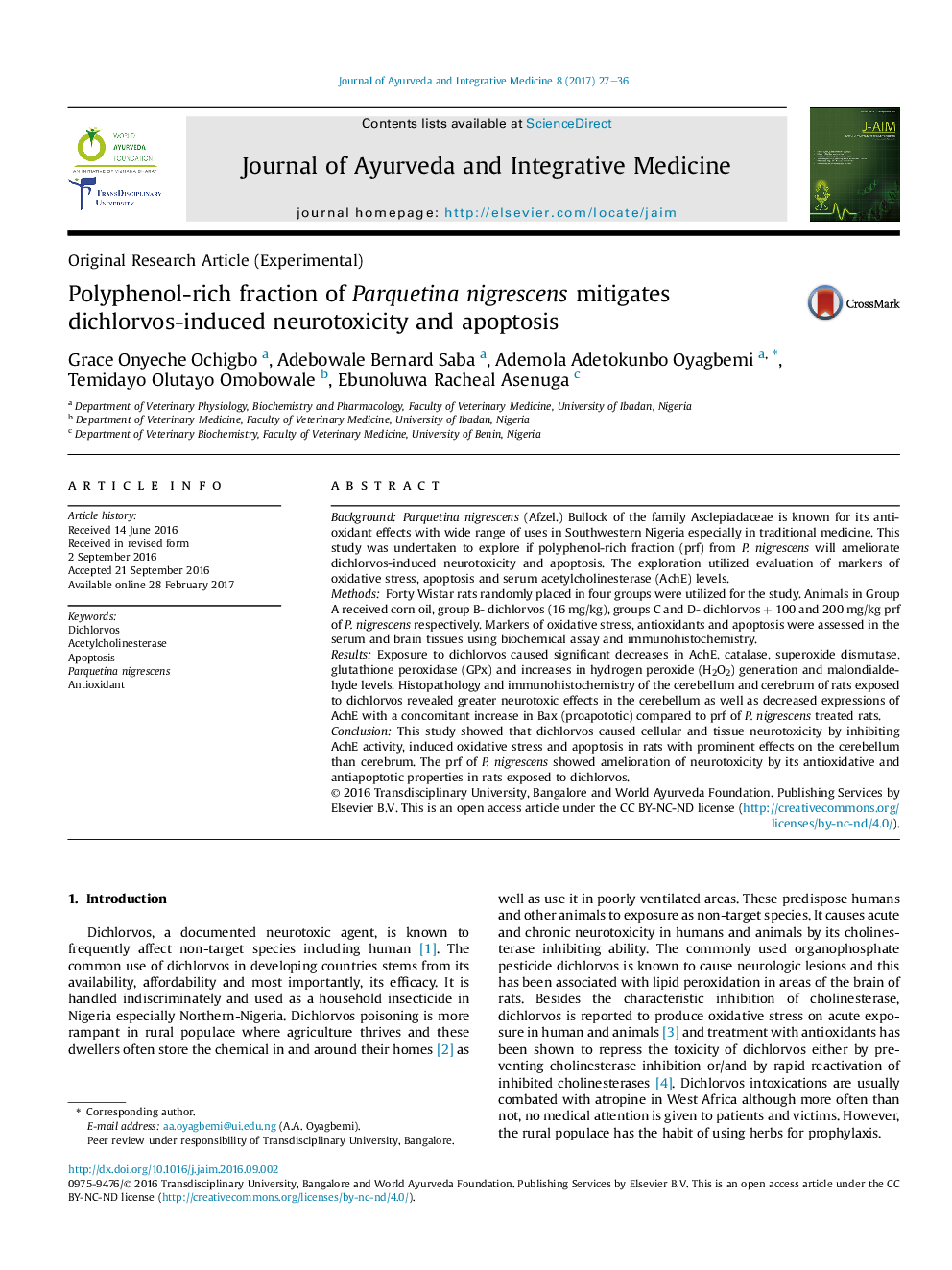| Article ID | Journal | Published Year | Pages | File Type |
|---|---|---|---|---|
| 5635281 | Journal of Ayurveda and Integrative Medicine | 2017 | 10 Pages |
BackgroundParquetina nigrescens (Afzel.) Bullock of the family Asclepiadaceae is known for its antioxidant effects with wide range of uses in Southwestern Nigeria especially in traditional medicine. This study was undertaken to explore if polyphenol-rich fraction (prf) from P. nigrescens will ameliorate dichlorvos-induced neurotoxicity and apoptosis. The exploration utilized evaluation of markers of oxidative stress, apoptosis and serum acetylcholinesterase (AchE) levels.MethodsForty Wistar rats randomly placed in four groups were utilized for the study. Animals in Group A received corn oil, group B- dichlorvos (16 mg/kg), groups C and D- dichlorvos + 100 and 200 mg/kg prf of P. nigrescens respectively. Markers of oxidative stress, antioxidants and apoptosis were assessed in the serum and brain tissues using biochemical assay and immunohistochemistry.ResultsExposure to dichlorvos caused significant decreases in AchE, catalase, superoxide dismutase, glutathione peroxidase (GPx) and increases in hydrogen peroxide (H2O2) generation and malondialdehyde levels. Histopathology and immunohistochemistry of the cerebellum and cerebrum of rats exposed to dichlorvos revealed greater neurotoxic effects in the cerebellum as well as decreased expressions of AchE with a concomitant increase in Bax (proapototic) compared to prf of P. nigrescens treated rats.ConclusionThis study showed that dichlorvos caused cellular and tissue neurotoxicity by inhibiting AchE activity, induced oxidative stress and apoptosis in rats with prominent effects on the cerebellum than cerebrum. The prf of P. nigrescens showed amelioration of neurotoxicity by its antioxidative and antiapoptotic properties in rats exposed to dichlorvos.
